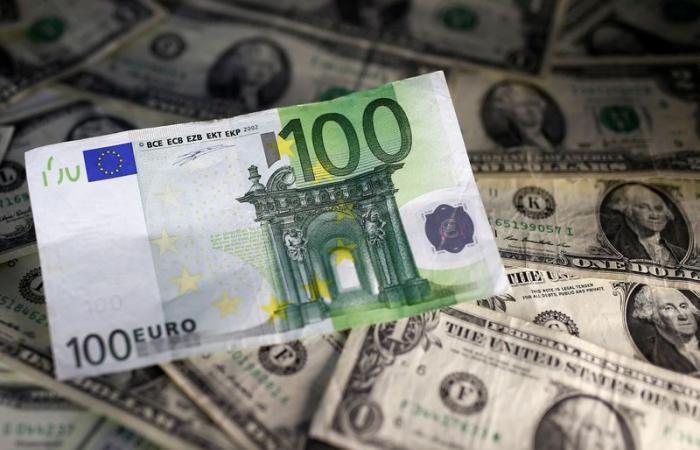The euro held on to its biggest rise in four months on Thursday, following upbeat remarks from a central bank official, while the yen had its strongest week in three months, on rising forecasts of an increase in interest rates in Japan in December.
The moves dampened the dollar’s resurgence ahead of what is likely to be thin trading through the end of the week due to the U.S. Thanksgiving holiday.
European Central Bank board member Isabel Schnabel told Bloomberg last night that rate cuts should be gradual and move toward neutral territory, not dovish, and investors have reduced bets on rate cuts, which sent the euro up 0.7% to $1.0560.
The euro faces resistance around $1.06, which could be tested if German inflation figures, due later in the session, turn out to be higher than expected.
The yen, meanwhile, has recovered strongly over the past two days, surpassing its 200-day moving average to reach 151.50 per dollar. It weakened slightly in morning trading in Asia, and hovered around 160 per euro.
The rate setting implies about a 60% chance of a 25 basis point rate hike in Japan next month, up from about 50% a week ago, and a majority of analysts polled by Reuters expect an increase.
“Higher-than-expected Japanese inflation numbers and the risk that the Fed will cut rates again in December have added to downward pressure on the dollar/yen,” said Jane Foley, Rabobank’s senior equity strategist. currencies, in a note addressed to clients.
These moves, combined with what traders said was a slowdown in dollar purchases by companies once they met their end-of-month needs, led to a general decline in the dollar and the U.S. dollar index fell nearly 0.8% overnight to 106.13.
US yields fell overnight, adding to downward pressure on the dollar, after data showed US personal consumption spending was in line with expectations with a monthly increase of 0.2%.
Sterling climbed on greenback weakness to $1.2675 and the New Zealand dollar posted a gain of more than 1% on Wednesday after a 50 basis point rate cut in Wellington was smaller than expectations of the market which expected 75 basis points.
The kiwi settled at $0.5892, while the Australian-kiwi cross fell 0.7% to A$1.1020. The move, along with weaker-than-expected inflation, muted gains for the Australian dollar which rose just 0.4% overnight.
A 0855 GMT speech by Reserve Bank of Australia Governor Michele Bullock is expected to provide guidance on the central bank’s sensitivity to inflation data.
“We believe that if policy is discussed, a similar message of ‘caution’ is likely to be repeated with the RBA on a different path to many of its counterparts,” Corpay strategist Peter Dragicevich said.
In emerging markets, the Brazilian real collapsed to a record low and 10-year yields rose 38.5 basis points on concerns about the impact of tax cuts on a strained budget.






